Whether you’re an avid outdoorsman, a daily jogger, or just someone who sometimes gets caught in the rain, we all know the struggle of dealing with wet shoes. Not only can they be uncomfortable, but they can also develop unpleasant odors if not dried properly. In this comprehensive guide, we’ll explore effective methods to dry wet shoes without leaving behind that dreaded smell. We’ll cover everything from quick tips to product recommendations, real-world experiences, and more!
Understanding Why Shoes Get Smelly When Wet
When shoes get wet, they create the perfect breeding ground for bacteria and fungi. As moisture evaporates, it can leave behind odors trapped in the materials of the shoe. According to a study published by the American Journal of Sports Medicine, damp environments can lead to the growth of microbes that cause foot odor, which can easily infiltrate your favorite footwear. Understanding this process is the first step in preventing smells from developing in your shoes.
Common Causes of Smelly Wet Shoes
- Moisture: Unsurprisingly, moisture is the main culprit behind the smell.
- Material: Shoes made with synthetic materials often retain odors more than those made from natural materials.
- Lack of Airflow: Shoes that are stored in dark, damp places promote bacteria growth.
- Foot Sweat: Feet naturally sweat, and when combined with wet shoes, the smell can intensify.
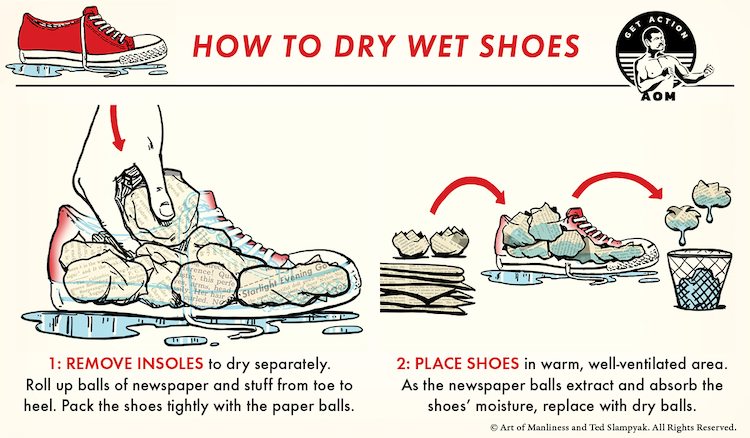
Quick Hacks to Prevent Smelly Shoes
Before diving into the complete methods of drying wet shoes, here are a few quick hacks that can help reduce odor right away:

- Use Baking Soda: Sprinkle baking soda inside your wet shoes to absorb moisture and odors.
- Essential Oils: Add a few drops of essential oils, such as tea tree or lavender, to promote a fresher smell.
- Dryer Sheets: Placing dryer sheets inside shoes can help neutralize odor.
Methods for Drying Wet Shoes
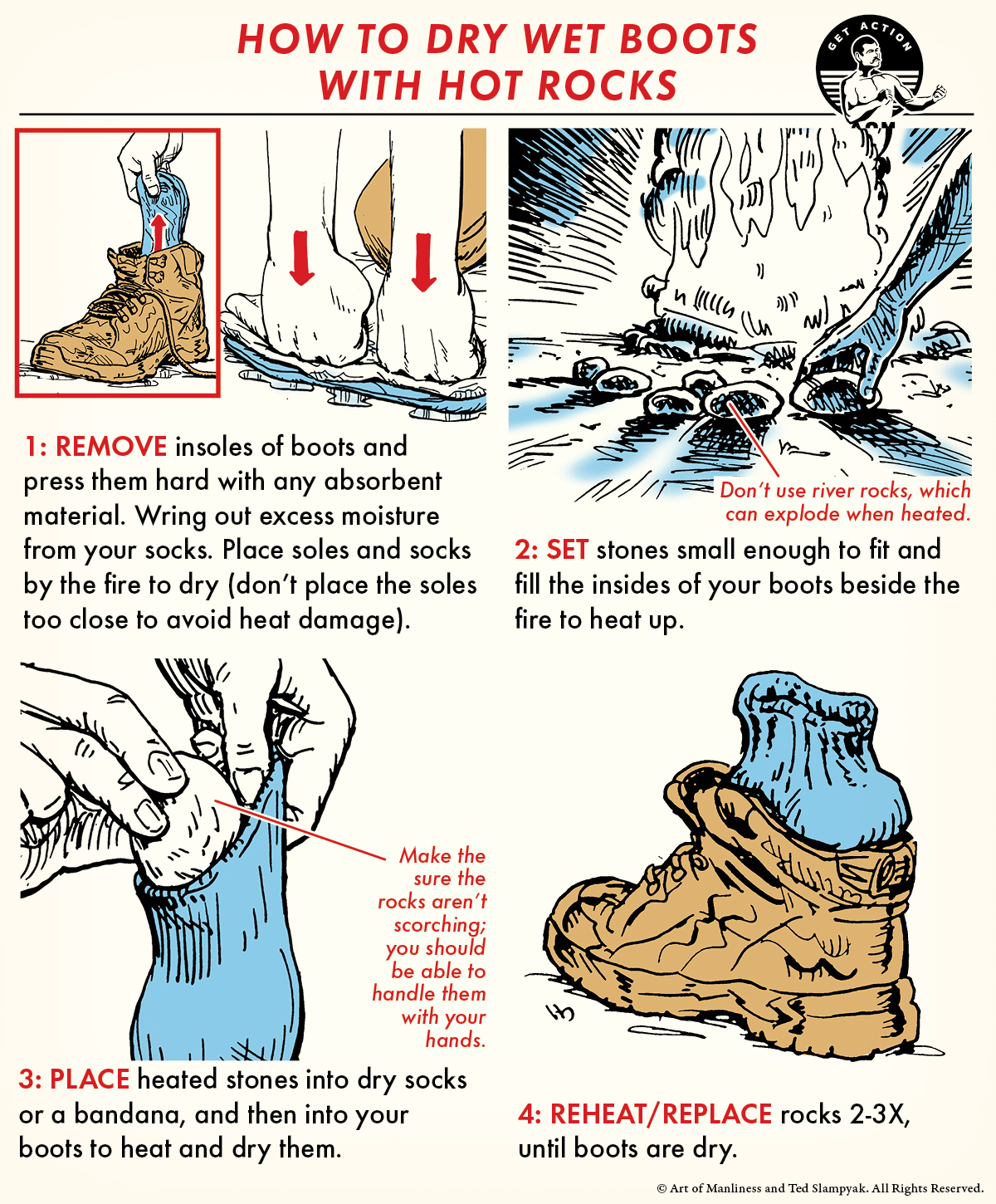
Now that we have a better understanding of why shoes can smell, let’s look at effective methods to dry them without the lingering odor!
1. Air Drying
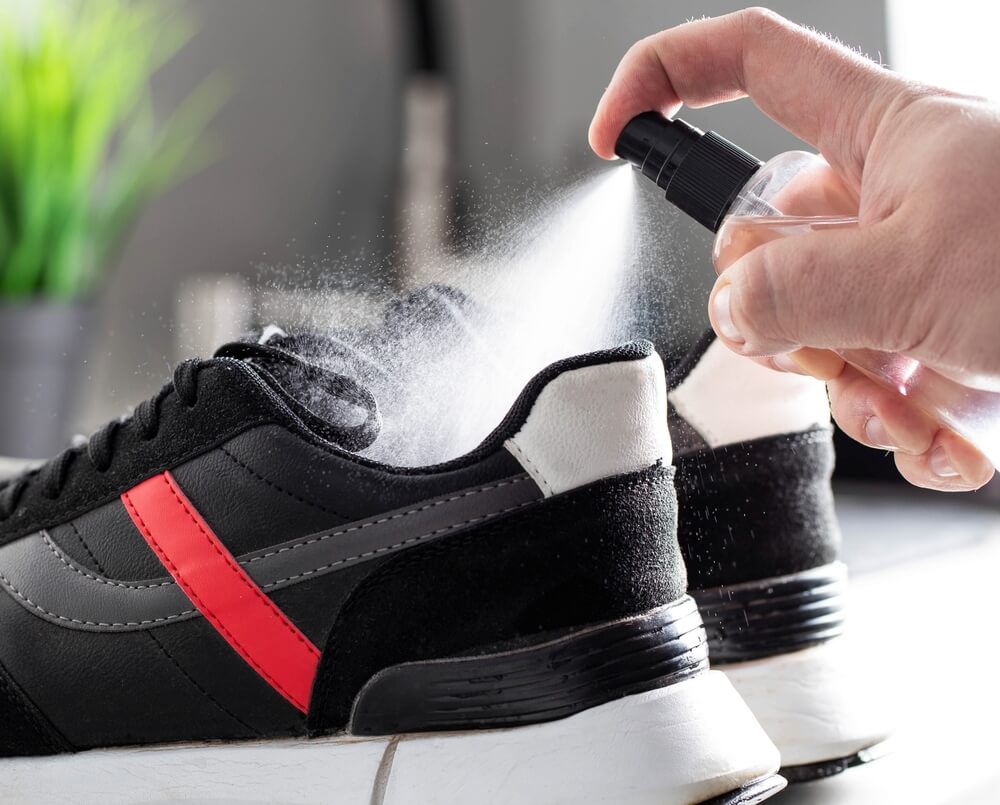
The simplest and often the most effective way to dry wet shoes is to let them air dry. Here’s how:
- Remove Laces and Insoles: Take out the laces and insoles to allow for better airflow.
- Place in a Well-Ventilated Area: Set your shoes in a warm, dry place, away from direct sunlight to prevent damage.
- Use Fans: If possible, use a fan to speed up the drying process and improve airflow.

Pros and Cons of Air Drying
| Pros | Cons |
|---|---|
| Gentle on shoes | Takes time, especially for thick materials |
| Cost-effective | Weather dependent (e.g., raining can hinder this) |
2. Newspaper Stuffing
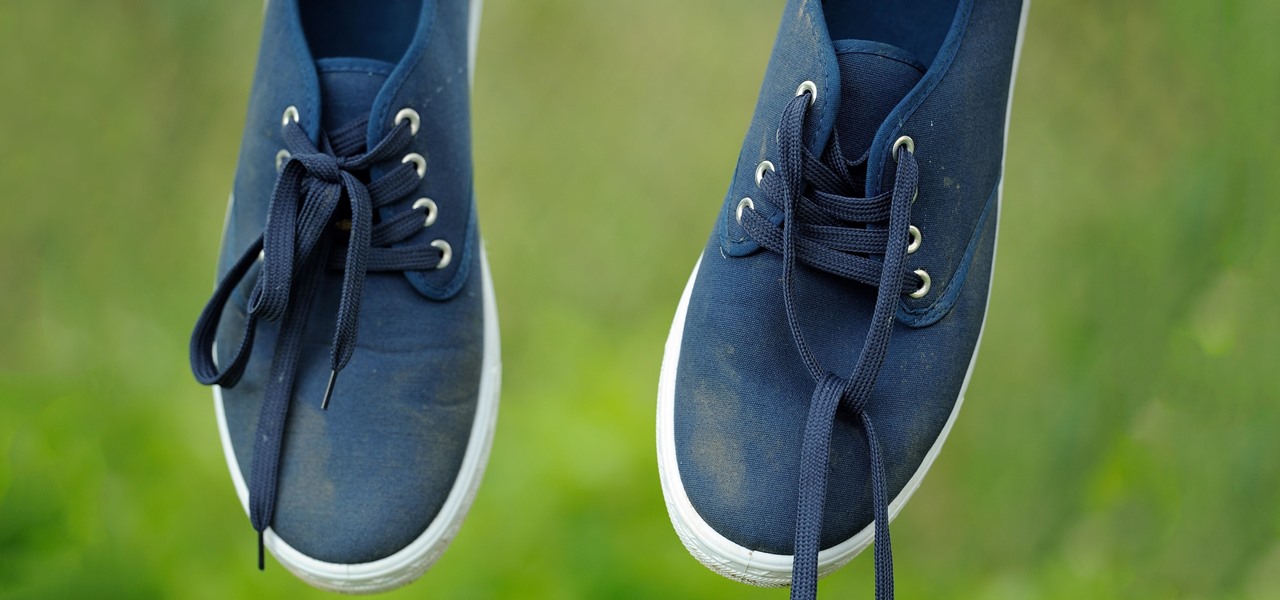
This method is an age-old solution that many shoe aficionados swear by. Here’s how to do it:
- Ball up old newspaper and stuff it inside the wet shoes, making sure to fill them up completely.
- The newspaper will absorb moisture and help maintain the shoe’s shape.
- Replace the newspaper every few hours until the shoes are completely dry.
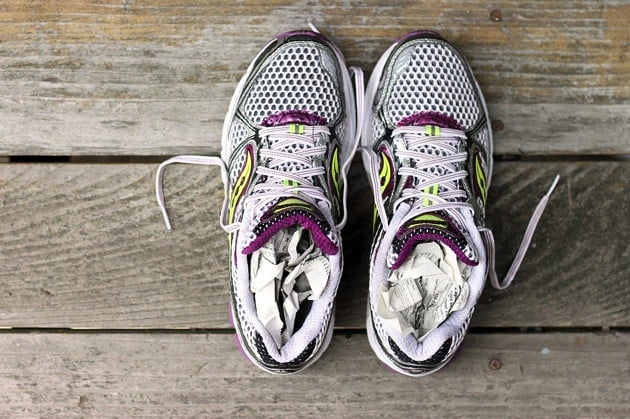
Pros and Cons of Newspaper Stuffing
| Pros | Cons |
|---|---|
| Effective moisture absorption | Can leave ink stains if the paper is too wet |
| Helps maintain shape | Need to have old newspapers handy |
3. Using a Boot Dryer

For those who frequently encounter wet shoes, investing in a boot dryer may be worthwhile. These gadgets use warm air to efficiently dry shoes and eliminate odors. Here are some benefits:
- Quick Results: Boot dryers work faster than air-drying methods.
- Odor Elimination: Some models come with odor-fighting features.
Top Boot Dryer Recommendations
- DryGuy DX Forced Air Boot Dryer: Known for its effectiveness and quick drying time.
- PEET Shoe Dryer: A popular choice with a long-standing reputation for quality.
Pros and Cons of Using a Boot Dryer
| Pros | Cons |
|---|---|
| Fast and efficient | Requires an investment |
| Prevents odor buildup | Not suitable for all shoe types (e.g., leather) |
4. Rice Method
Another popular hack is using rice to absorb moisture. Here’s how:
- Place uncooked rice in a breathable cloth bag or pantyhose.
- Stuff the bag into the wet shoes.
- Leave for several hours or overnight to let the rice do its magic.
Pros and Cons of the Rice Method
| Pros | Cons |
|---|---|
| Effective moisture absorption | May attract pests if left for too long |
| Readily available ingredient | Requires clean rice to avoid odors |
5. Using Activated Charcoal
Activated charcoal is famous for its odor-absorbing properties. Here’s how to use it:
- Place a few charcoal bags or pouches inside your wet shoes.
- Leave overnight to absorb moisture and combat odors.
Why Choose Activated Charcoal?
According to a study by the University of Colorado Boulder, activated charcoal is incredibly effective at trapping bacteria and moisture, making it an excellent choice for shoe care.
Pros and Cons of Using Activated Charcoal
| Pros | Cons |
|---|---|
| Long-lasting odor control | Need to purchase charcoal bags |
| Non-toxic and chemical-free | May require regular replacement |
Real-World Experiences
To give you further insights, we gathered experiences from various shoe enthusiasts who have successfully dried their wet shoes without any remnants of smell.
Case Study 1: Outdoor Enthusiast
Max, a hiking enthusiast, often finds himself with wet shoes after a long trek. He swears by the newspaper method, noting that “not only does it work perfectly, but it also saves me money since I can reuse old newspapers!” He recommends replacing the newspaper frequently for the best results.
Case Study 2: Busy Professional
Lisa, a busy professional, prefers to use a boot dryer. “I don’t have time to wait for air drying,” she shares. “I love my DryGuy boot dryer – my shoes are always fresh for the next day!”
Case Study 3: Student on a Budget
Tom, a college student, utilizes the rice method. “It’s cheap and effective,” he notes. “You just need to remember to clean the rice if you leave it for too long!”
Tips to Maintain Fresh Shoes
In addition to drying methods, here are some additional tips to keep your shoes smelling fresh:
- Rotate Your Shoes: Try not to wear the same pair daily, allowing time for moisture to evaporate.
- Wash Inserts Regularly: If possible, regularly wash your shoe inserts and replace them when worn out.
- Use Antimicrobial Sprays: Consider using sprays designed to prevent odor in footwear.
FAQs About Drying Wet Shoes
1. Can I put my wet shoes in the dryer?
No, using a dryer can damage shoes and alter their shape. It’s best to air dry or use a boot dryer.
2. How long does it take to air dry shoes?
Air drying can take anywhere from 12 to 24 hours, depending on humidity and temperature.
3. Can I use a hairdryer to dry my shoes?
While you can use a hairdryer, it’s not recommended as the heat can damage the materials.
4. How often should I clean my shoes to prevent odors?
It’s best to clean your shoes regularly, especially if they get wet or sweaty. Aim for every few weeks or as needed.
5. Is it okay to use bleach to clean my shoes?
Bleach can damage materials, so it’s better to use specialized cleaners or mild soap and water.
6. What if my shoes still smell after drying?
If odors persist, consider using odor-fighting products like sprays, charcoal bags, or even vinegar.
7. Can I use fabric softener in my shoes?
Using fabric softener may not be advisable as it can leave residues that attract dirt and create additional odors.
8. Do leather shoes require special drying methods?
Yes, leather shoes should be dried slowly and away from direct heat. Consider using a boot dryer made for leather.
9. What’s the best way to store dry shoes to prevent future odors?
Store your shoes in a dry, cool place with good airflow. Consider using cedar shoe trees for added moisture absorption.
Conclusion
Drying wet shoes doesn’t have to be a cumbersome task filled with odors. Armed with the right knowledge, techniques, and products, you can restore your footwear to its pre-wet condition without any lingering smells. Whether you choose the time-tested methods of air drying and newspaper stuffing or opt for modern solutions like boot dryers and activated charcoal, maintaining fresh and dry shoes is achievable. Remember, prevention is key—keep your shoes clean, dry, and stored properly to avoid unwanted odors altogether. Happy shoe care!